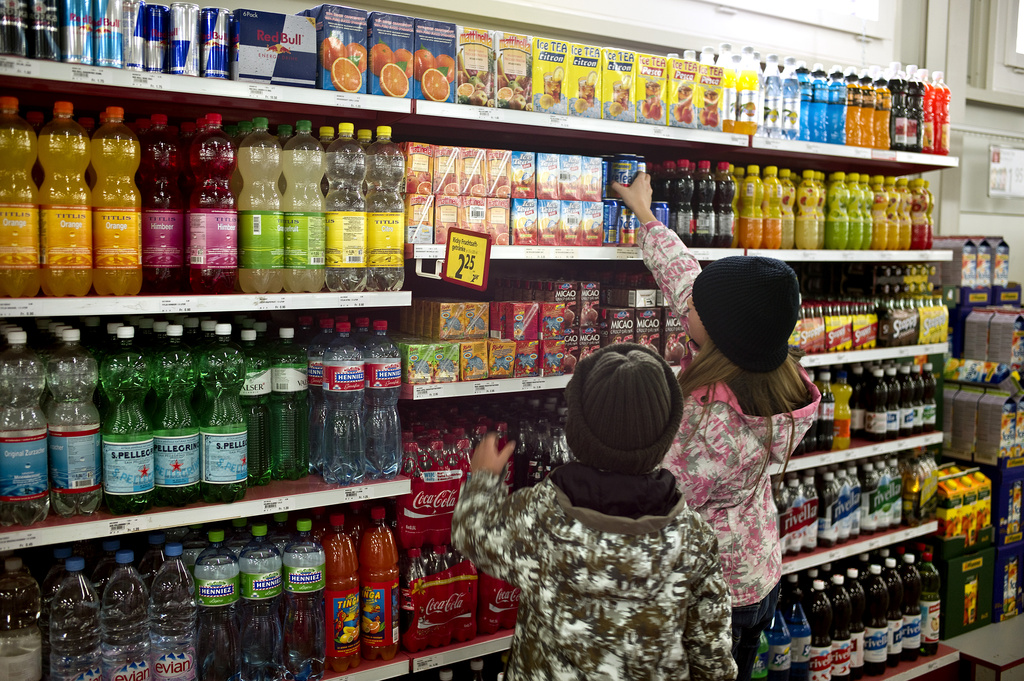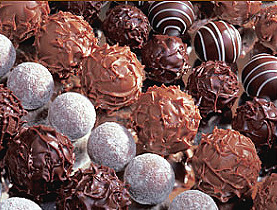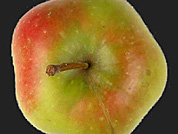Frequent soft drink consumption “bad for health”

Guzzling a sugary soft drink a day leads to weight gain and slows energy metabolism, Swiss researchers have found.
In a study of healthy young men, all participants developed adverse effects within three weeks.
Past studies into the health repercussions of sweetened soft drinks looked into high sugar intake, but the Zurich University-led research is the first study to show the effects of low to moderate consumption of fructose, glucose and sucrose drinks.
Lead research author Kaspar Berneis told swissinfo.ch they were aiming for a realistic picture of what happens with regular consumption. “I have to say that I am surprised at the extent of the findings. When I wrote the protocol a lot of people told me that we wouldn’t see anything using such low doses of sugar.”
The 29 men in the test group were given a 600ml drink every day, concocted by Nestlé’s Product Technology Centre in Switzerland and taken in 200ml batches. It contained different doses of sucrose (the most common ingredient in canned drinks), fructose (less common in European drinks) and glucose.
In the study published by the American Journal of Clinical Nutrition, the test men all had a normal starting weight and an average age of 26. By the end of the study, there was a significant change in the Body Mass Index and weight in the moderate glucose drinkers. Waistlines grew most in those drinking fructose and sucrose.
Fructose intake resulted in slower metabolism of glucose into energy and smaller low density lipoprotein particles, which impedes the metabolism of carbohydrates. In another effect, the risk of subclinical inflammation – a key factor in the development of cardiovascular disease – doubled.
“These drinks are bad”
All this is “worrisome” considering the test took place over just three weeks and among healthy young men, who physiologically are best able to process such sugars, say the study authors. From the results it’s foreseeable that the effects would be worse in other age and gender groups.
“If we had taken people with diabetes or who were obese then the likelihood that we would see something would have been much greater. But using these healthy young men of course we would not expect to see such an effect,” said Berneis.
“I think we can say these drinks are bad and it’s even worse when, as our study shows, we consume them often.”
Nutritionists are hardly going to argue with the results.
According to Muriel Jaquet, a dietician at the Swiss nutrition association, sugared drinks are at the top of a list of food and drink that should be consumed sparingly. But, a small daily intake of either a sweetened drink, chocolate, chips or salted snacks “do not cause any problems” for health, she told swissinfo.ch.
“It’s well known, and there are enough studies backing this up, that excessive consumption of sugared drinks, albeit with fructose, sucrose or glucose, are not good for health. Regularly drinking large quantities of sugared drinks, such as 500ml bottles, or several times in a day, is not advised.”
“Occasionally drinking a glass of lemonade or a syrup [and water] mixed drink is not harmful, if the consumption of other sugared products is also moderated,” she added.
Sugar-free trend
The Union of European Soft Drinks Associations said people had a choice of sugar-free soft drinks, such as Coke Zero and Pepsi Max.
Such drinks account for up to 40 per cent of sales in Europe, spokeswoman Sam Rowe told swissinfo.ch. Demand is growing all the time, she noted.
“There are full sugar drinks. I don’t think anyone would ever tamper with the famous Coke recipe. That will always continue. But there are many no sugar and low sugar products.”
She added that the organisation would look into the research findings.
Back at Zurich University Hospital’s department of clinical nutrition, Berneis’ own research is making him think again about his own drinking habits.
“I also thought I need to take care of myself and my son, and I think for most people it should mean that even in low or really moderate doses these things can harm your health.”
His advice: don’t make a regular habit of it.
– 35-40% of soft drinks sales across Europe are no and low sugar varieties.
– The European beverages market totals some 123 billion litres per year.
– Soft drinks contribute around 2% of calories to the average daily diet in Europe.
– Water represents some 90% of a sugar-containing carbonated drink – even more in low calorie versions.
– The European soft drinks industry was the first to adopt Guideline Daily Amount nutrition labelling as an entire sector back in 2007.
– The majority of ingredients used in beverages are sourced locally and production is situated relatively close to markets and consumers, resulting in low food miles.
– The soft drinks industry is expanding with some 40% of the products on sale today having been introduced in the past five years.
– A regular soft drink in a 330ml can contains around 139 calories.
– A 33ml can of a regular soft drink contains about 35 grammes of sugar.
(Source: Union of European Soft Drinks Associations)
In December 2010, six leading food and non-alcoholic beverage companies active in Switzerland launched the Swiss Pledge, which replicates the commitments of a similar European Union pledge.
It involves a common commitment to change the way they advertise to children. The move followed calls by the EU for the food industry to use commercial communications to support parents in making the right diet and lifestyle choices for their children. The EU Pledge programme is endorsed and supported by the World Federation of Advertisers.

In compliance with the JTI standards
More: SWI swissinfo.ch certified by the Journalism Trust Initiative






You can find an overview of ongoing debates with our journalists here . Please join us!
If you want to start a conversation about a topic raised in this article or want to report factual errors, email us at english@swissinfo.ch.